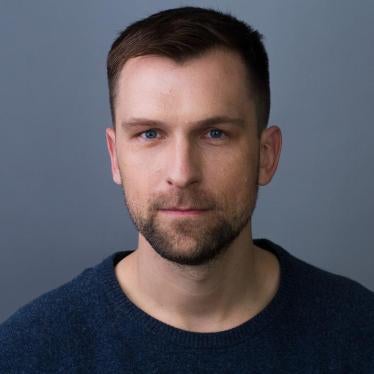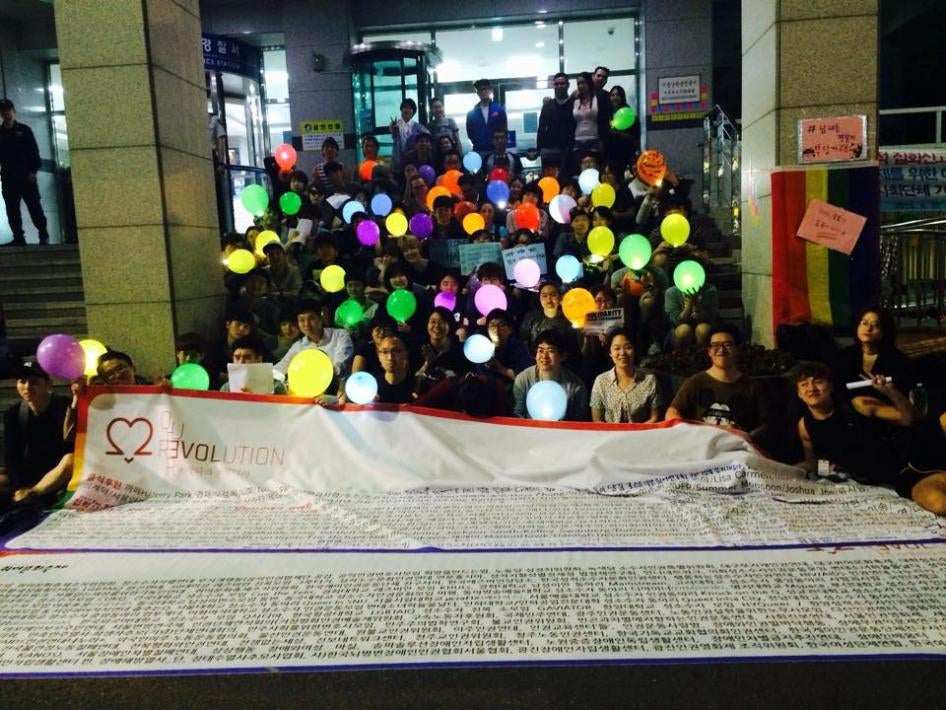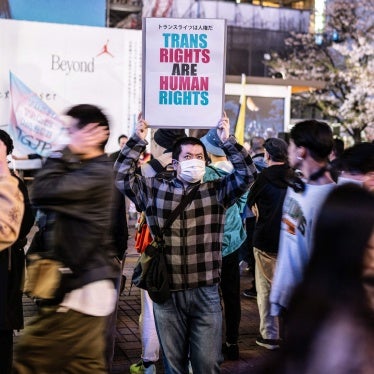When South Korea’s government denied the Beyond the Rainbow Foundation official incorporation in February 2015, it was a disturbing reminder of the country’s persistent failure to uphold the basic rights of lesbian, gay, bisexual and transgender (LGBT) people.
The foundation raises funds to support the LGBT movement in South Korea. It documents discrimination against LGBT people, advocates for their rights and aims to make civic space safer for LGBT people and their families. Denying official registration to the Beyond the Rainbow Foundation curtails this group’s ability to receive tax-deductible donations and operate in full compliance with the law.
The government’s rebuff came in three stages. First, there was an informal push-back when the group approached the Seoul Metropolitan Government. Then, there was a similar refusal from the National Human Rights Commission. Finally, the Ministry of Justice rejected their formal application for registration. Each agency claimed that LGBT rights were not within their purview.
The registration system for nongovernmental groups is decentralized such that groups must register with the most relevant agency out of many. Since LGBT rights do not fall clearly under any agency’s specific mandate, and the issue is still something of a political hot potato because of bias, the agencies were able to send the Beyond the Rainbow Foundation from one place to another.
In rejecting their application, the Ministry of Justice made the most stinging remarks, saying: “The Ministry of Justice develops, oversees and revises policies related to all human rights issues in South Korea … [But] since your foundation’s main objective is promoting human rights for a social minority, it is different in nature from the organizations that the ministry allows to incorporate.”
The Beyond the Rainbow Foundation challenged the ministry’s ruling in an ongoing case at the Seoul Metropolitan Court, which was to hold its final hearing on the case on Friday.
In January, during a visit to Seoul, the United Nations special rapporteur on the rights to freedom of peaceful assembly and of association asked the obvious question to the government in a public statement: “Who, then, should the Beyond the Rainbow Foundation apply to?”
That’s a good question, but neither the Ministry of Justice nor any other government agency has replied publicly to the special rapporteur’s simple inquiry.
In fact, while nongovernmental groups that are already registered for other purposes can carry out projects on LGBT rights, only one cultural group that already had some projects dealing with LGBT rights has been able to register formally.
The government’s track record on the rights of LGBT people is inconsistent and troubling.
At the United Nations, South Korea has rightly been a champion for LGBT rights, voting in 2011 and again in 2014 at the Human Rights Council in Geneva in favor of resolutions to end the international scourge of violence and discrimination on the basis of sexual orientation and gender identity. Both of these resolutions assert a simple, binding principle: “All human beings are born free and equal in dignity and rights.”
But at home, the LGBT rights situation deteriorated throughout 2015. Following the Beyond the Rainbow Foundation’s rejection, the government rolled out new sex education guidelines that excluded homosexuality from its curriculum— a clear denial of children’s rights to education and information. Then, last May, the Seoul Metropolitan Police Agency refused to permit a pride parade, only to have a court overturn the denial based on a petition filed by the organizers.
At least in these cases, it was clear which government entity was responsible for an unreasonable decision so that action could be taken to rectify that wrong. The Ministry of Education was wrong to censor or limit classroom materials and discussions. Accurate information about sexuality is integral to upholding the fundamental rights to education, information and health.
And try as they may, the police cannot get away with calling off a parade only because, as they claimed, it may disturb traffic. Parades, by definition, disturb traffic, and registered peaceful protests deserve police protection, not subjective moral scrutiny.
In the Beyond the Rainbow Foundation’s registration debacle, various government departments are ducking responsibility for the foundation’s application — sending activists from pillar to post, and throwing South Korea’s commitment to protect freedom of assembly and association into question.
It should not be necessary for LGBT groups to lobby to find a government agency to consider their application for registration, or to demonstrate general public support to get a fair hearing from the government. South Korea already has robust constitutional protections for the freedom to assemble and associate, and these should prevail.
Addressing the Beyond the Rainbow Foundation’s case, the special rapporteur called for the government to “take proactive measures to promote the right to association to all.”
The government of South Korea should heed that call, and act swiftly to uphold the rights of LGBT people by permitting the Beyond the Rainbow Foundation to file its application for registration with the Ministry of Justice or another appropriate government department, and ensuring the application is considered promptly and without bias.









